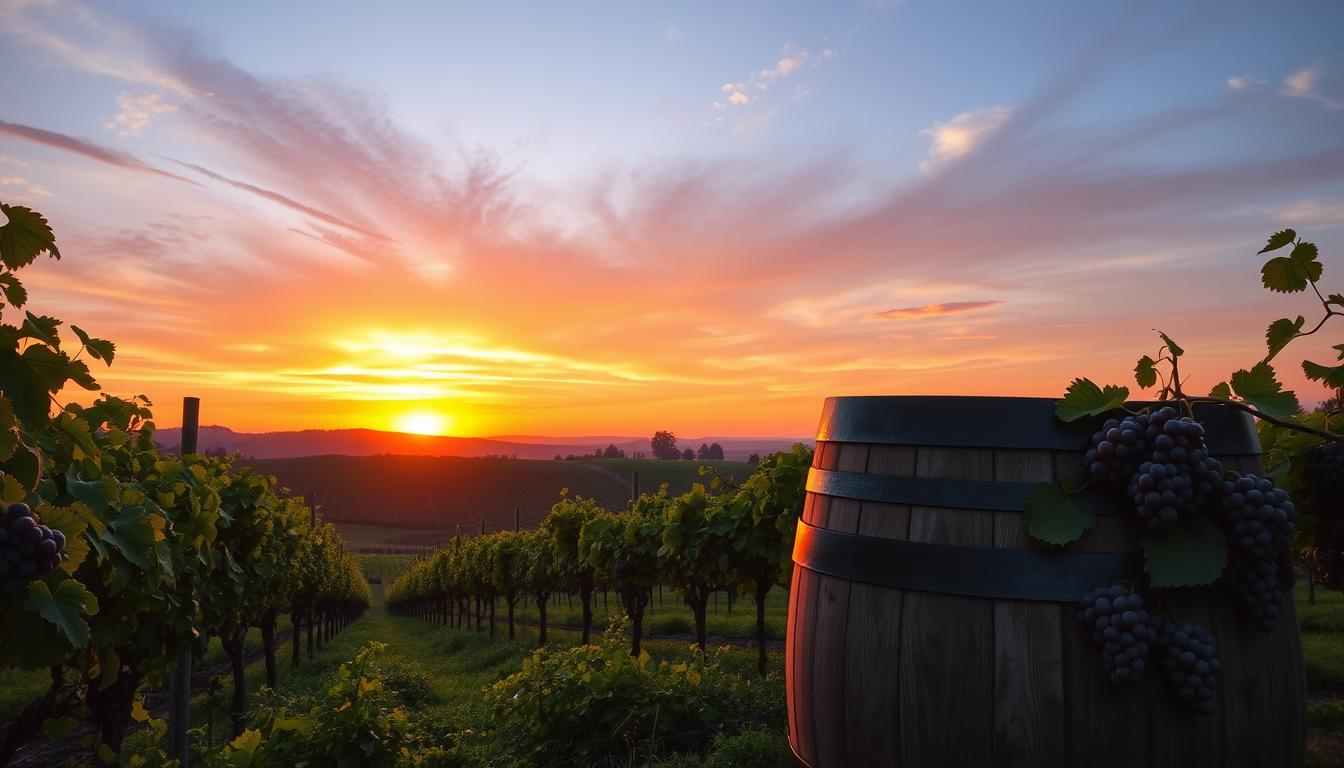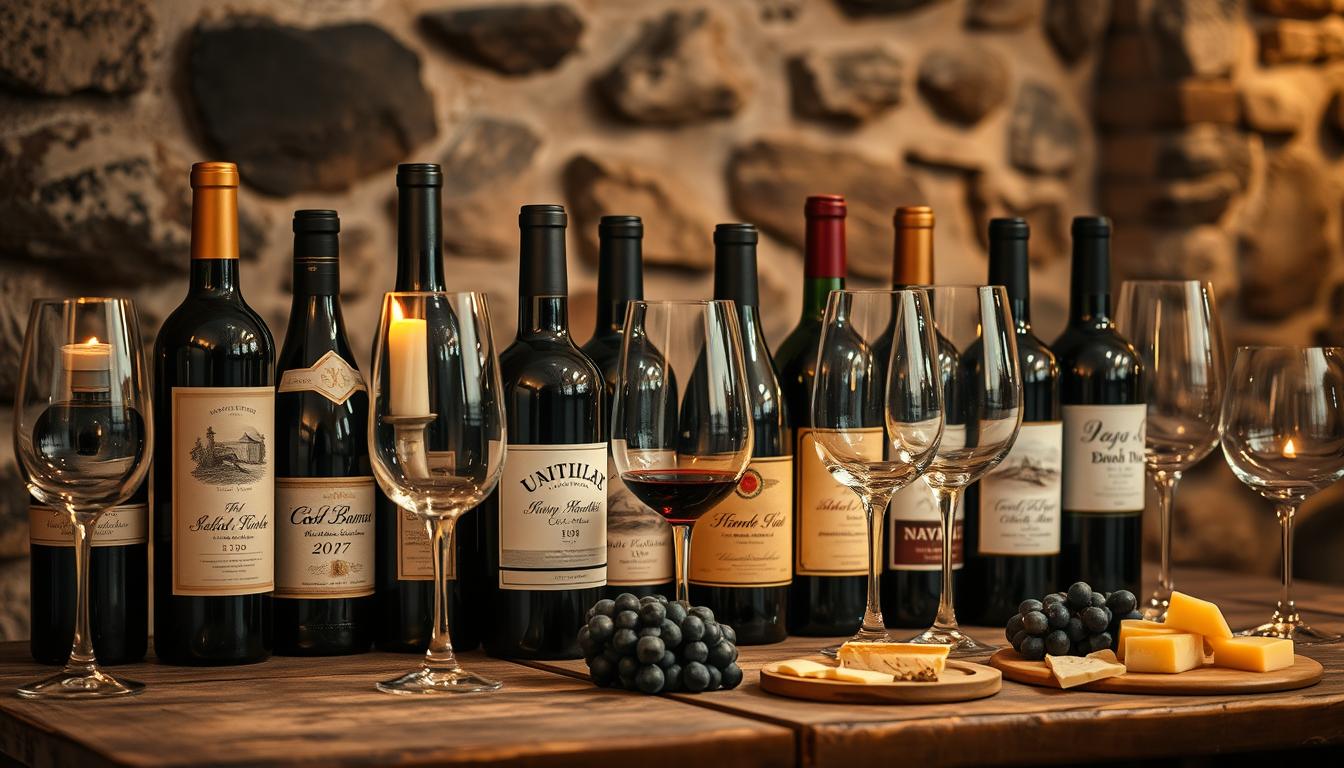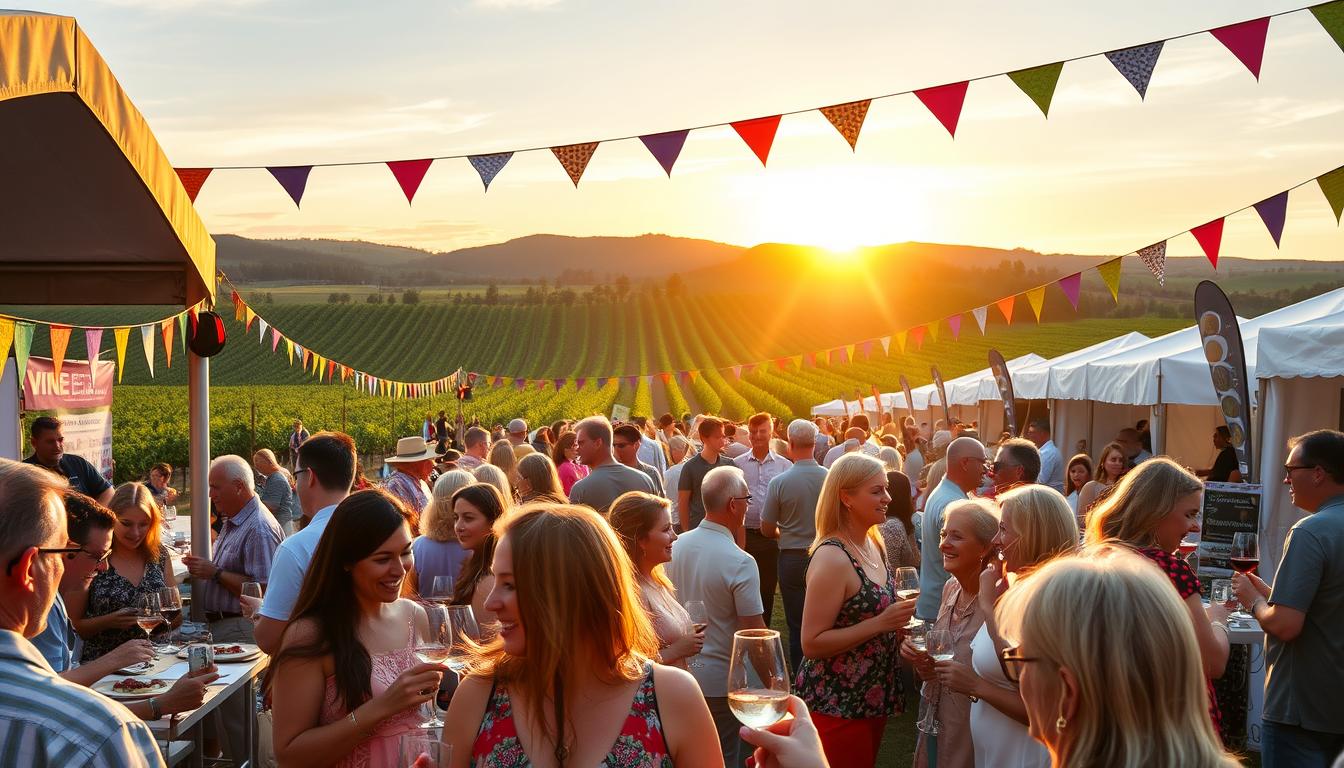Imagine standing in a sun-drenched vineyard, the air filled with the sweet aroma of ripening grapes, as the sun casts a golden glow across rows of lush green vines. This moment, both serene and invigorating, could be your introduction to the captivating journey of wine education. Whether you’re at a friend’s dinner party or a quiet evening at home, understanding wine transforms the experience from a simple drink into a delightful exploration of culture and tradition. Every bottle tells a story, and by embarking on a path to learn about wine, you unlock the door to savoring these stories with newfound appreciation.
In the ever-evolving world of wine, mastering the essentials of wine education can both enhance your tasting experiences and bolster your confidence as a wine enthusiast. With numerous avenues available—ranging from comprehensive online courses to in-person classes—there has never been a better time to dive into exploring wine culture. Each step you take deepens your connection to this ancient art, revealing the craft of winemaking while fostering an engaging community of fellow wine lovers.
Key Takeaways
- Understanding wine enhances your appreciation and enjoyment.
- Wine education programs cater to various skill levels.
- Courses from WSET, like Level One, provide a solid foundation.
- Engaging with others in wine classes fosters connections.
- Learning about wine enriches personal experiences and dining culture.
The Importance of Wine Education
Exploring the world of wine entails more than just sipping your favorite bottle; it involves understanding the intricate details that make each wine unique. The importance of wine education cannot be overstated, particularly for those seeking to enhance their tasting experience. Knowing the basics of wine terminology empowers you to navigate wine lists and engage in fruitful conversations about various wines. This knowledge transforms simple appreciation into true expertise.
Understanding Wine Terminology
Wine terminology encompasses a wide range of terms that describe wine characteristics and production methods. Familiarizing yourself with this language is key to enjoying wine fully. Key terms to know include:
- Varietal: Referring to the grape type used in wine production.
- Tannin: The component that gives wine its structure and astringency.
- Terroir: The unique environmental conditions of a vineyard that affect its wine.
Having a grasp on these terms provides you with the confidence to discuss wines intelligently, making social situations surrounding wine more enjoyable.
Benefits of Wine Knowledge
The benefits of wine knowledge extend beyond mere conversation starters. A deeper understanding of wine can significantly enhance your tasting experience. You learn to appreciate the subtle nuances of aroma, flavor, and texture that define each glass. It also enables you to make informed food pairings, elevating both your dining and tasting experiences.
| Type of Knowledge | Benefits |
|---|---|
| Wine Terminology | Confidence in choosing and discussing wines. |
| Tasting Techniques | Enhanced sensory analysis and enjoyment. |
| Food Pairings | Improved meal experiences through informed choices. |
| Production Insights | Understanding the journey from grape to glass. |
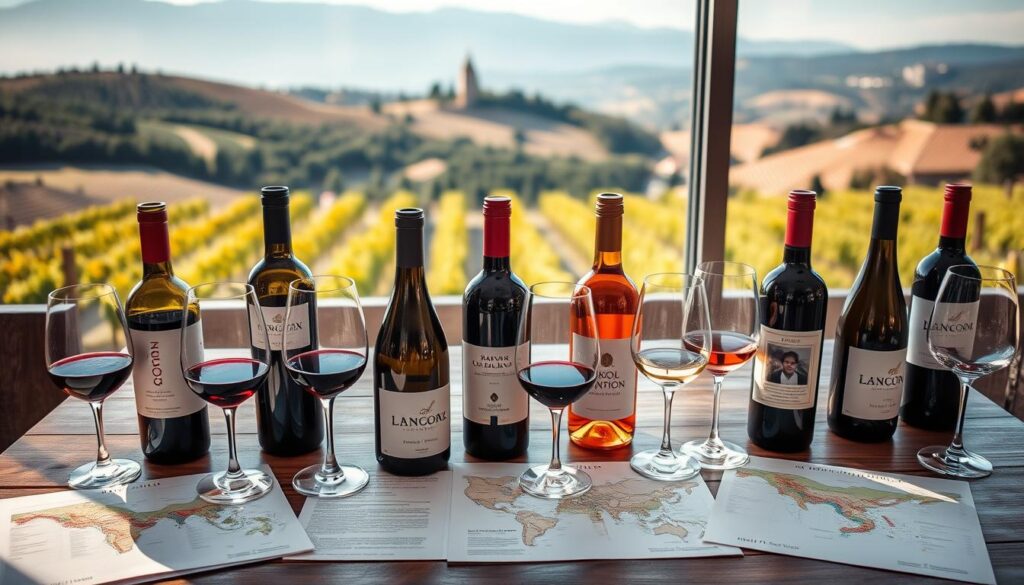
Types of Wine Education Programs
Exploring the diverse avenues of wine education can significantly enhance your understanding and appreciation of this fine beverage. With the option of studying in various formats, you have the flexibility to choose what suits you best. Here are three prominent types of wine education programs:
Online Wine Courses
Online wine courses provide a convenient way to dive into wine education. You can learn at your own pace while enjoying the comfort of your home. Courses often range from beginner levels to advanced study, covering topics such as wine history, tasting techniques, and pairing essentials. This format attracts many individuals, including those who may not work in the wine industry yet have a keen interest in learning more.
In-Person Wine Classes
For those who prefer tactile learning, in-person wine classes offer unique experiences. These classes enable you to engage directly with instructors and fellow enthusiasts. Not only do you benefit from hands-on wine tasting, but these interactive settings foster networking opportunities and lively discussions. Many wine schools across the country offer enticing programs, ensuring that participants gain practical expertise.
Study Abroad Programs
If you seek an immersive experience, study abroad wine programs present a chance to explore famous wine regions such as France, Italy, and Spain. Not only do these programs provide intensive learning opportunities, but they also allow you to immerse yourself in the rich culture surrounding winemaking. Such travel enhances your education, making every sip of wine a deeper appreciation of its origin.
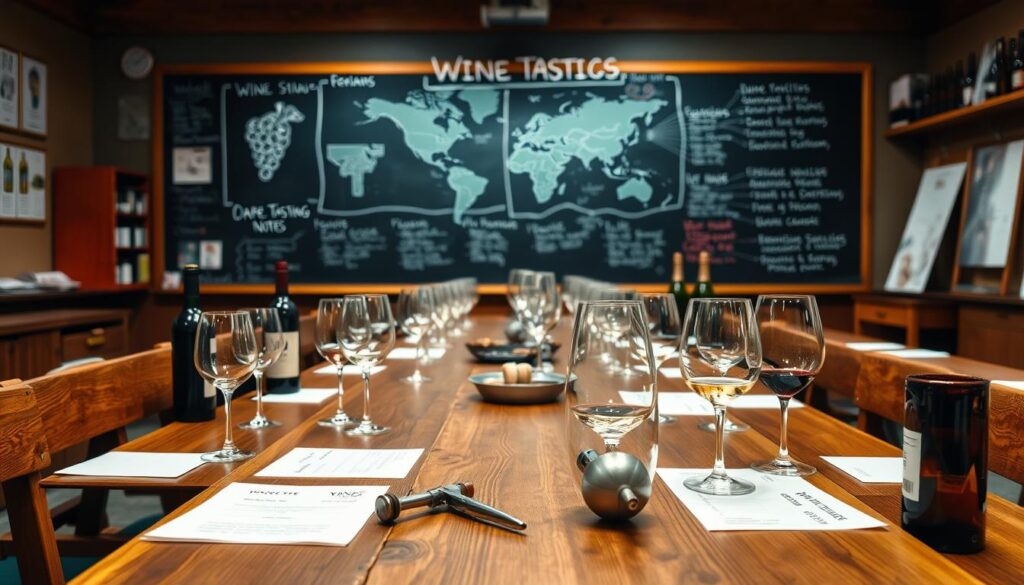
Wine Tasting Courses: Elevate Your Experience
Wine tasting courses provide an excellent opportunity to enhance your understanding and enjoyment of wine. These courses typically cover essential aspects of tasting, including identifying distinct flavors and aromas. Expect a structured format that will transform your palate while deepening your appreciation for different wines. Such courses are designed for all experience levels, making them accessible whether you’re a novice or an enthusiastic connoisseur.
What to Expect from a Wine Tasting Course
When enrolling in wine tasting courses, you can anticipate a comprehensive educational framework. Serious wine enthusiasts often find structured modules that include:
- Understanding Flavor Profiles: Learning how to distinguish various taste notes.
- Wine and Food Pairing: Discovering ways to match wines with meals for an elevated dining experience.
- Blind Tasting Techniques: Improving skills to identify wines without seeing the labels.
- Cultivating a Personal Preference: Exploring different styles and regions to find your favorites.
For example, the course “Discover the Essentials of Wine (and choose it like a pro!)” launched on Teachable on November 2, spanning 5 modules with a total of 35 lessons, priced at $97. Upon purchase, you gain exclusive access to a Facebook group and additional resources, available until January 31. This course aims to equip you with essential skills to navigate the world of wine confidently.
Choosing the Right Course for You
When considering choosing wine courses, you’ll want to think about your personal goals and preferences. Evaluate factors such as:
| Criteria | In-Person Courses | Online Courses |
|---|---|---|
| Interaction | Live discussions and direct feedback | Flexible timeline with recorded lectures |
| Accessibility | Location-dependent, requires travel | Available from anywhere, ideal for busy schedules |
| Cost | Varies by location and institution | Often competitively priced, like the $97 course |
| Content Focus | Hands-on experience | Theory and tasting exercises |
With the rise of virtual wine tasting classes and online sommelier programs, you now have abundant options. These platforms provide not only convenience but also a comprehensive syllabus covering essential wine theory, enhancing your overall wine experience.
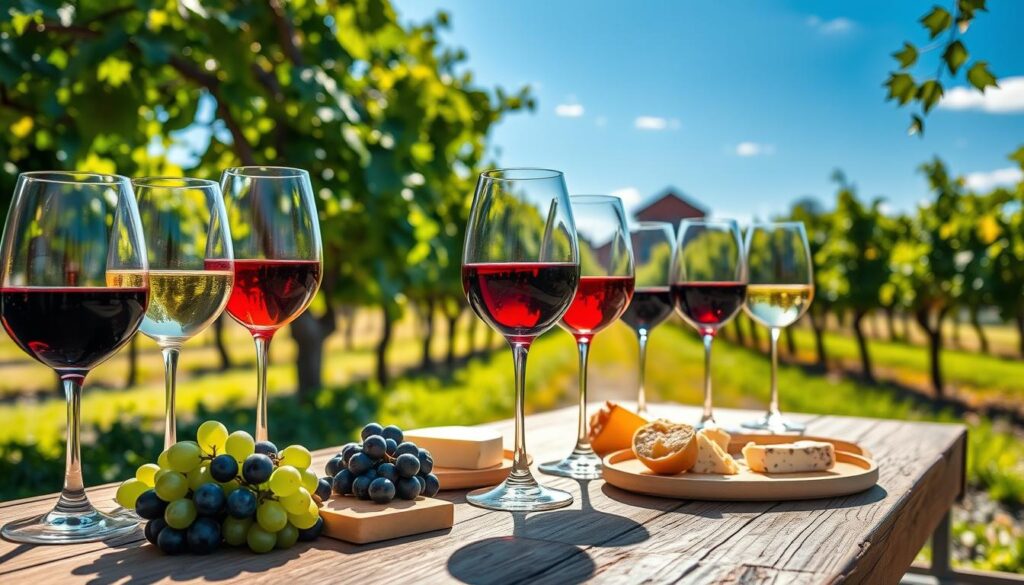
Wine Certification Programs for Aspiring Sommeliers
Embarking on the journey to become a sommelier opens countless doors in the wine industry. Wading through wine certification programs provides you with knowledge, skills, and a pathway toward professional recognition. Sommelier training typically involves a comprehensive curriculum, where you delve into various wine styles, regions, and tasting techniques. This structured approach readies you for challenging certification exams while honing your service skills for impeccable food and wine pairings.
Overview of Sommelier Training
Different wine certification programs cater to varying levels of expertise and can be completed online or in person. Notably, the International Sommelier Guild (ISG) offers courses that last between 3 to 9 months. For a more intensive experience, the Court of Master Sommeliers (CMS) introduces a rigorous hierarchy with five certification levels, from the entry-level Level 1 (L1) to the esteemed Master Sommelier level (L5). The Wine and Spirits Education Trust (WSET) program also presents valuable opportunities, with prices ranging from $250 at lower levels to up to $10,000 for a Level 4 Diploma. Each program emphasizes distinct aspects of wine education, preparing you for a rewarding future in this vibrant industry.
Benefits of Certification
Achieving certification as a sommelier brings numerous benefits of certification that extend beyond mere credentials. With a recognized qualification, you significantly enhance your job prospects in various sectors of the wine business. Certified sommeliers gain greater credibility, often leading to increased trust among clients and employers. Furthermore, acquiring expertise heightens your appreciation for wine’s intricate subtleties and elevates your overall enjoyment. Online programs have made sommelier training more accessible, allowing you to earn certifications such as Level 2 (L2) and Level 3 (L3) from the comfort of your home. This flexible approach accommodates your schedule while nurturing your passion for wine.
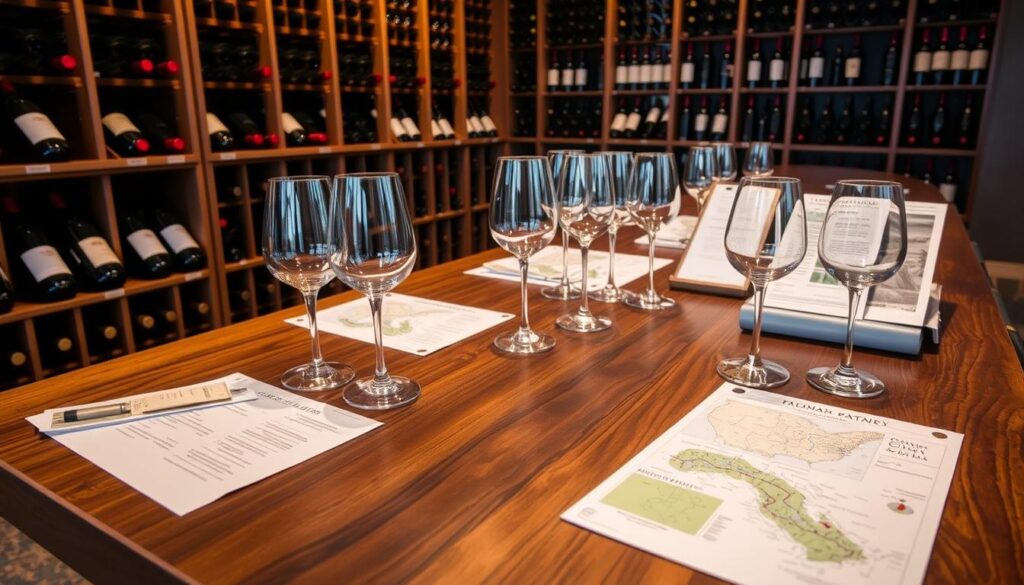
Mastering the World of Viticulture Education
Delve into the fascinating realm of viticulture education, where the science of grapes and the nuances of growing grapes play a vital role in the world of wine. This field encompasses various essential aspects, enabling you to understand the interconnections between soil, climate, and the various practices that yield high-quality grapes. Engaging in this education is crucial for anyone seeking to expand their expertise and appreciation of winemaking.
The Science of Grapes and Growing
Viticulture education provides insights into the biological and chemical aspects related to the growth of grapes. You’ll learn about soil management, climate’s influence on grape characteristics, and sustainable farming practices that ensure vineyard health. Knowledge gained in this area is invaluable, as a solid foundation in viticulture not only enhances your understanding of the grape lifecycle but also influences the quality of the wine produced.
Hands-On Experience in the Vineyards
Participating in a vineyard experience brings theoretical learning to life. Engaging directly in the grape-growing process allows you to witness how your education translates into practice. Whether you partake in pruning, training vines, or harvesting, each action informs you about the intricacies of successful viticulture. Such hands-on opportunities solidify your understanding and appreciation for the hard work and knowledge that go into producing exceptional wines.
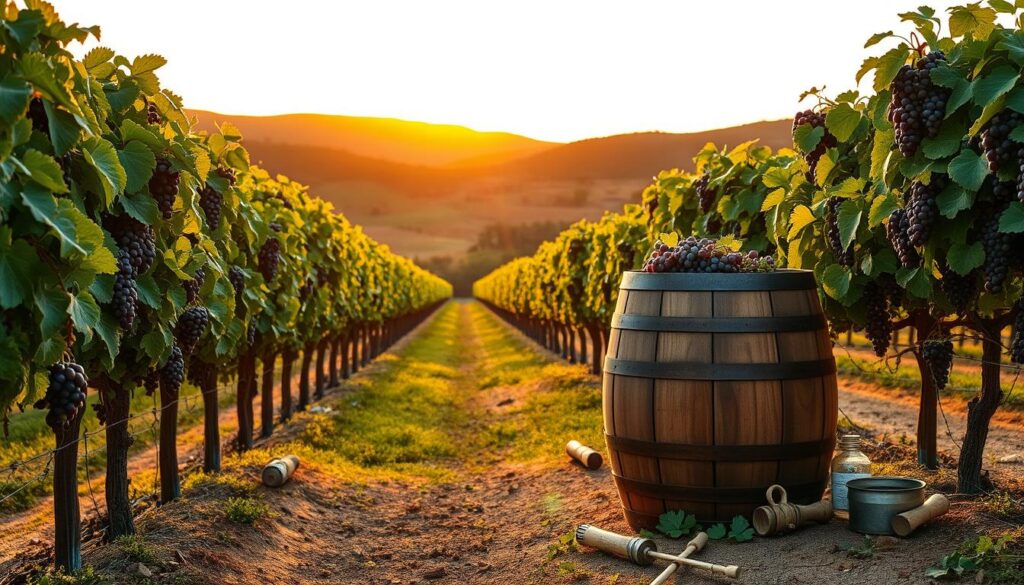
Exploring Enology Classes
Enology classes offer a deep dive into the fascinating world of wine production. These courses equip you with essential knowledge about the processes involved in crafting wine, along with a thorough understanding of its chemistry. You will learn how various elements influence the final product, from grape selection to fermentation and aging techniques.
The Art of Wine Production
Wine production encompasses a series of intricate steps that turn grapes into the delightful beverages we enjoy. Topics such as fermentation, filtration, and bottling procedures will be explored. Each enology class builds a foundation allowing you to appreciate the artistry that goes into every bottle.
Understanding Wine Chemistry
A strong grasp of wine chemistry is crucial for anyone serious about winemaking. These classes dissect how acidity, sugar levels, and tannins impact flavor profiles and aromas. You will investigate the reactions that occur during fermentation and how they affect the overall quality of the wine.
Practical Lessons in Wine Making
Experience is a vital part of your education. Enology classes usually incorporate hands-on activities, enabling you to create your wine under the guidance of seasoned professionals. These practical lessons not only enhance your skills but also cultivate a deeper connection with the wine you produce.
| Course Code | Units | Lecture Hours | Laboratory Hours | Grading Method |
|---|---|---|---|---|
| WINE 1 | 3 | 3 | – | Grade Only |
| WINE 3 | 4 | 3 | 3 | Grade or P/NP |
| WINE 42.1 | 2 | 1 | 3 | Grade Only |
| WINE 42.2 | 2 | 1 | 3 | Grade Only |
| WINE 55 | 3 | 2 | 3 | Grade Only |
| WINE 56 | 3 | 3 | – | Grade Only |
| WINE 70 | 1.5 | 1.5 | – | Grade or P/NP |
| WINE 101 | 1.5 | 1.5 | – | Grade or P/NP |
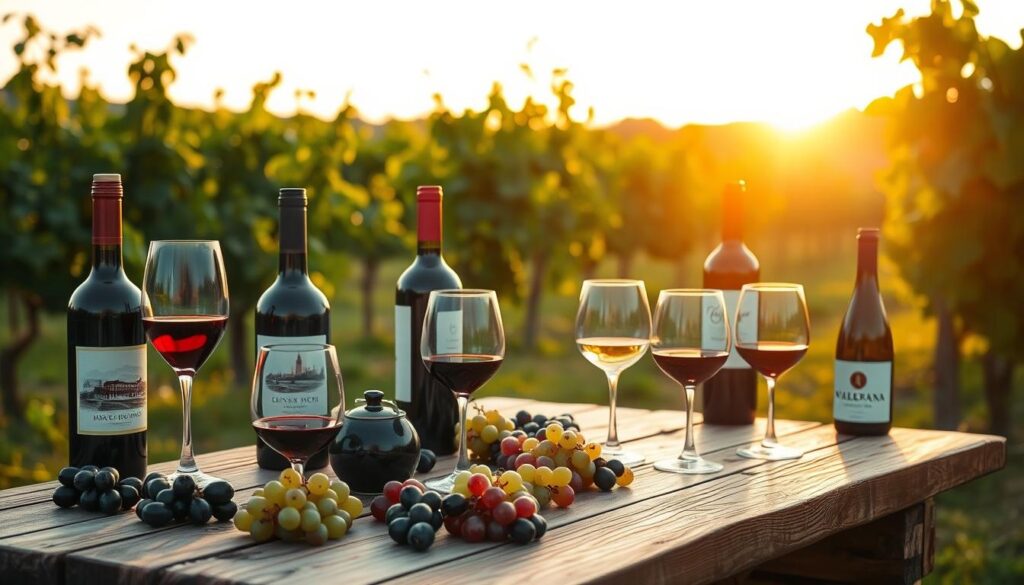
Wine Education for Everyone
Wine education is designed to be accessible and enjoyable for everyone, regardless of your starting point. Whether you are a novice hoping to understand the basics or an advanced enthusiast eager to dive deeper into specific varietals, opportunities abound. Classes cater to various skill levels, ensuring that each person can find the right path for their learning journey.
Beginner to Advanced Levels
Beginner wine classes often provide a solid foundation. You will learn essential concepts such as wine varieties, tasting techniques, and food pairings. As you progress, advanced wine education programs can take you to new heights. Offering insights into niche markets, such as natural wines or emerging regions, these classes are perfect for those who wish to refine their palate and expand their knowledge base.
Classes for Industry Professionals
For those working in the industry, specialized classes can elevate your skills further. These sessions often focus on advanced pairing techniques, sales strategies, and emerging trends in wine. Engaging with these programs not only enhances your professional capabilities but also connects you with a community of like-minded individuals passionate about wine education.
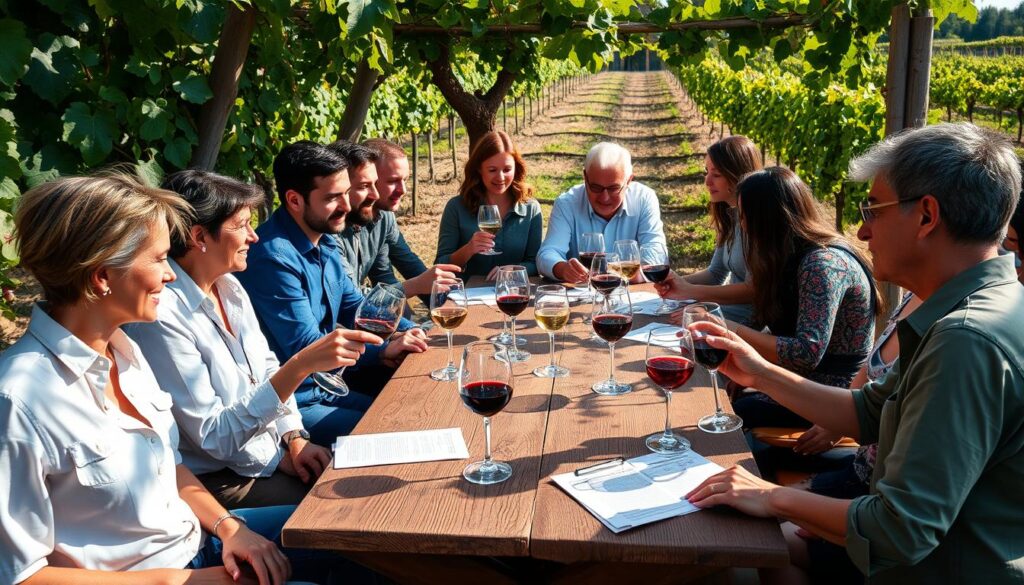
| Class Type | Level | Duration | Focus Areas |
|---|---|---|---|
| Beginner Wine Classes | Beginner | 4-6 weeks | Tasting Basics, Wine Styles, Food Pairing |
| WSET Level 2 | Intermediate | 6-8 weeks | Major Wine Regions, Tasting, Serving |
| Advanced Pairing Techniques | Advanced | 3 weeks | Food-Wine Pairing, Service Skills |
| Niche Market Studies | Advanced | Varies | Natural Wines, Emerging Regions |
With a diverse range of wine education avenues available, you can clearly see why learning about wine remains a cherished and fulfilling pursuit, appealing to both personal interests and professional aspirations. With the right classes, the journey into the world of wine can be both enjoyable and enriching.
Local Wine Schools and Courses
Finding the right local wine school can significantly enhance your wine education by providing community engagement and networking opportunities. Many of these institutions offer a variety of wine courses that cater to different interests and skill levels, connecting you with both passionate peers and seasoned experts.
Finding Schools Near You
The United States has a remarkable selection of top-notch local wine schools scattered across nearly every state. Consider exploring options like:
- San Francisco Wine School – Offers comprehensive programs leading towards certification.
- Napa Valley Wine School – Well-known for its varied wine certifications.
- Wine School of Philadelphia – Highly rated among sommeliers and critics.
- Fine Vintage LTD – Specializes in WSET classes nationwide.
These schools provide everything from introductory wine appreciation classes to advanced sommelier certification programs. Utilize search terms like wine courses near me to locate programs tailored to your schedule and educational needs.
Industry-Relevant Programs
Many local wine schools are focused on delivering industry-relevant wine programs that meet the growing demand for skilled professionals in the field. For instance:
- The Wine and Spirits Education Trust (WSET) offers a Level 1 Award in Wines, regarded as a comprehensive foundation for aspiring wine tasting professionals.
- San Francisco Wine School features programs that build toward 16 professional-level wine certifications.
- National Wine School provides essential knowledge through an eight-class certification program.
Attending these local wine schools not only broadens your understanding of wine but can also position you advantageously for career opportunities in various wine-related sectors.
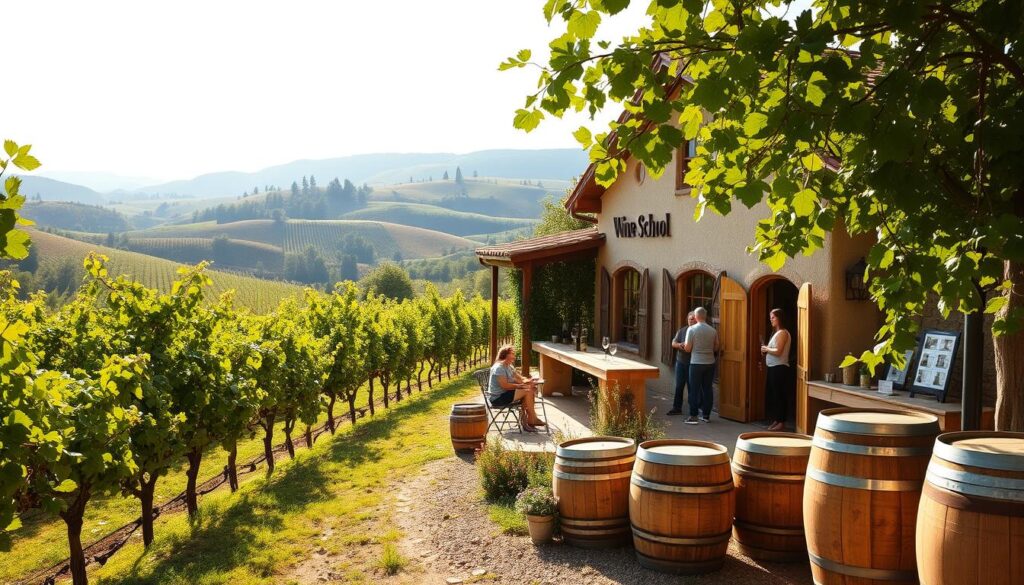
Attending Wine Tours and Immersion Experiences
Engaging in wine tours opens the door to unforgettable immersion experiences, offering variations that cater to both novices and seasoned enthusiasts. Travelers can explore renowned wine regions that each offer unique elements of local culture, history, and, of course, incredible wines.
Destination Wine Regions
Popular destinations such as Napa Valley, Bordeaux, and Tuscany provide an exceptional backdrop for your wine tours. Each region boasts distinct grape varieties and wine-making traditions, creating a captivating tapestry of flavors. For instance, you can savor the flinty minerality of Chablis in France or the bold notes of Tempranillo from Spain. Local wineries often feature guided vineyard tours, making these trips an education in their own right.
- Napa Valley: Known for its stunning landscapes and premier cabernets.
- Bordeaux: Celebrated for its rich history and blends of Merlot and Cabernet Sauvignon.
- Tuscany: Offers picturesque rolling hills and iconic Chianti wines.
Combining Travel and Education
Wine tours seamlessly blend travel and education through hands-on workshops and guided tastings. Participants gain valuable lessons on the intricate aspects of winemaking from local experts, including vineyard management, grape selection, and the nuances of aging processes. As you enjoy delightful tastings, you develop a deeper appreciation for the stories behind each bottle. Many wine tours also provide the opportunity for exploring different wine vintages, allowing participants to compare and contrast various years and styles. This immersive experience allows participants to expand their palate and knowledge of the unique flavors and characteristics of different wines. Additionally, exploring different wine vintages can also help participants understand how the environment and climate of a region can impact the taste and quality of the wine.
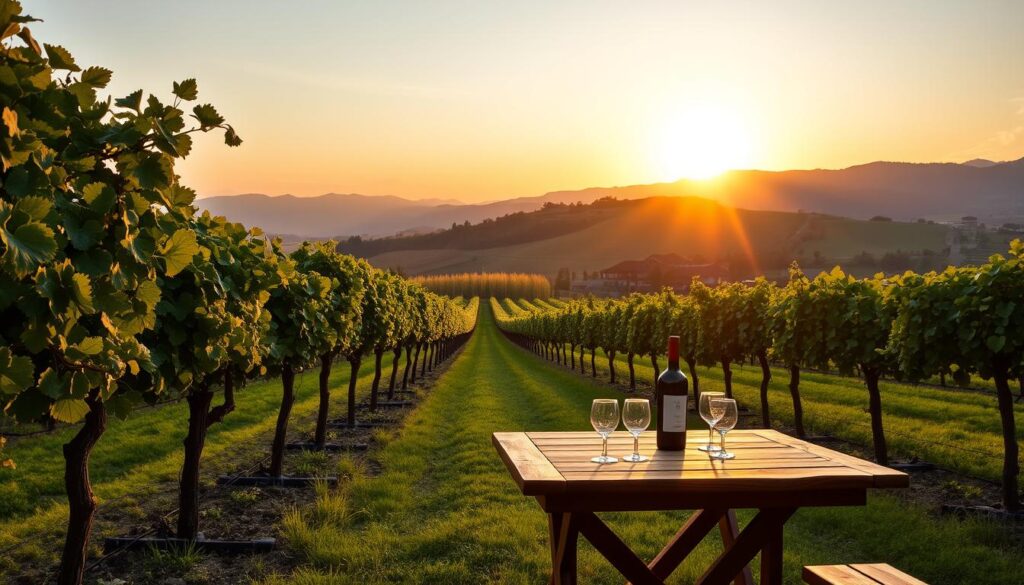
Wineries like Bouchaine in Napa offer unique demonstrations such as falconry, enriching your experience while you savor exquisite wines. For a more adventurous twist, Ancient Peaks Winery presents guests with thrilling ziplining opportunities above the vineyards. Each tour emphasizes both enjoyable exploration and valuable educational insights, ensuring you walk away with knowledge as expansive as the landscapes you traverse.
With these alluring wine tours and immersion experiences, your journey in travel and education deepens, leading you to forge lasting connections with the world of wine.
Master’s Programs in Wine Education
Embarking on a master’s program in wine education provides a profound opportunity for those passionate about deepening wine knowledge. These advanced programs typically span two years and require a total of 30 credits, with a mix of online courses and short residencies. Students not only engage in comprehensive coursework covering global wine business operations, entrepreneurship, and management but also receive curated wine-tasting kits featuring a selection of 24-30 global wines each semester.
Deepening Your Knowledge
The curriculum emphasizes both theoretical and practical aspects, focusing on innovative approaches to wine production and distribution. Participating in a master’s program facilitates personal growth within the wine industry, empowering you to explore various career paths such as entrepreneurship in retail and tourism or leadership roles with wineries and distributors. Faculty members, equipped with impeccable industry credentials, guide students through this enriching journey.
Networking with Experts
Wine education networking is another crucial aspect of these programs. Utilizing residency events held in renowned wine regions such as Napa Valley, students meet and connect with industry experts and fellow professionals. Alumni from prestigious institutions like the Culinary Institute of America often progress to notable career positions, like Private Client Wine Specialist and Restaurant Consultant. Engaging with such a strong network—over 50,000 strong—opens doors to invaluable mentorship opportunities, fostering connections that can significantly influence your career trajectory.
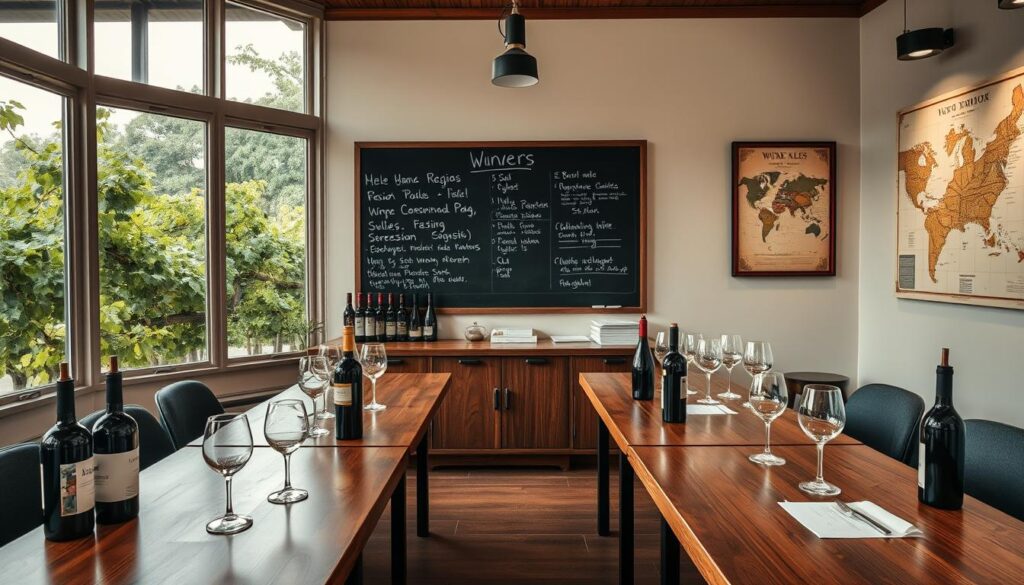
Wine Education: A Lifelong Journey
Embarking on a lifelong journey in wine education opens the door to vibrant wine communities filled with enthusiasts and experts alike. Engaging with these communities enriches your experience, fostering a spirit of continuous learning. You will discover that becoming a member of various wine clubs and organizations provides a platform for discussions, tastings, and sharing knowledge.
Becoming a Member of Wine Communities
Joining wine communities allows you to connect with like-minded individuals passionate about the world of wine. Here are some benefits of membership:
- Access to exclusive events and tastings.
- Networking opportunities with industry professionals.
- Workshop participation to enhance practical skills.
- Updates on the latest trends and discoveries in wine.
Continuous Learning and Engagement
Continuous learning can take many forms, from online courses to in-person seminars. Engaging in structured programs ensures that your knowledge remains current. With options like:
- Webinars and virtual tastings that fit your schedule.
- Workshops that dive deep into specific aspects of wine.
- Thrice-weekly quizzes and interactive sessions on platforms like Instagram to test and expand your knowledge.
Each engagement reinforces the idea that wine education is not a destination, but a path that unfolds over a lifetime, linked by the vibrant fabric of wine communities that support your journey.
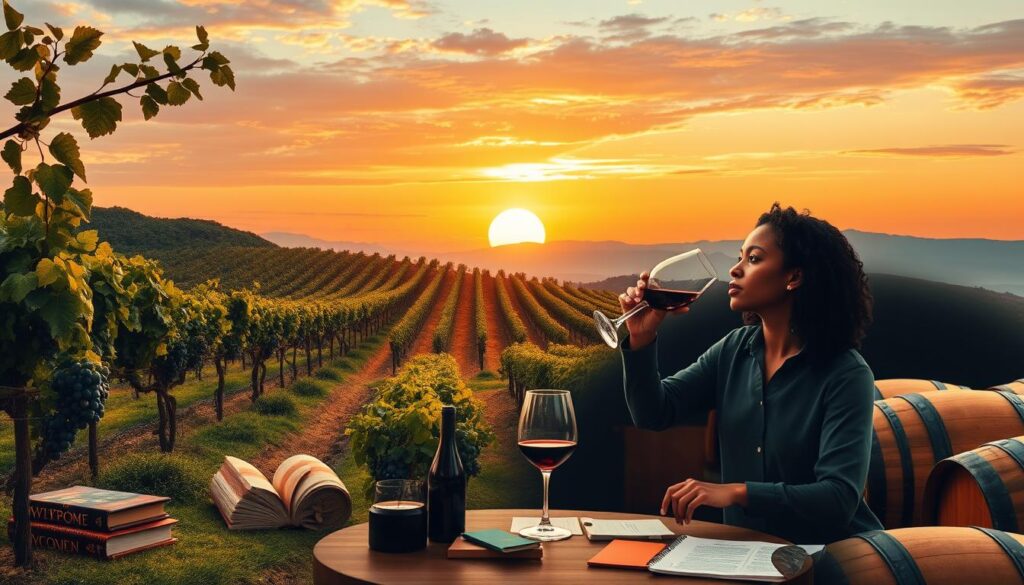
| Course Type | Format | Description |
|---|---|---|
| WSET Level 2 Certificate | In-person & Online | Beginner-friendly course with a thorough introduction to wines. |
| WSET Level 3 Certificate | Hybrid | Advanced study focusing on the why and who behind each bottle. |
| Online Workshops | Virtual | Interactive sessions that cover various wine topics. |
Conclusion
In summary, engaging in quality wine education not only enhances your appreciation and enjoyment of wine but also opens doors for professional growth. As highlighted throughout the article, various programs like those offered by Fine Vintage Ltd. and the Wine and Spirit Education Trust (WSET) provide structured pathways for both novices and seasoned enthusiasts. The blend of formal certifications and immersive experiences allows you to deepen your knowledge while connecting with fellow wine lovers.
Your journey into the world of wine can be both enlightening and enjoyable. From the foundational courses to advanced qualifications like the Master of Wine, each step enriches your understanding and appreciation of this fascinating domain. The final thoughts on wine education remind you that every glass is an invitation to discover more, whether it’s the intricate details of viticulture or the artistry of enology.
Ultimately, the conclusion on wine education emphasizes the importance of continuous learning and community engagement. By diving into the realm of wine, you’re not just enhancing your own experience; you’re also becoming part of a global network of passionate individuals. So raise your glass and toast to an exciting journey ahead, filled with knowledge and connections!
